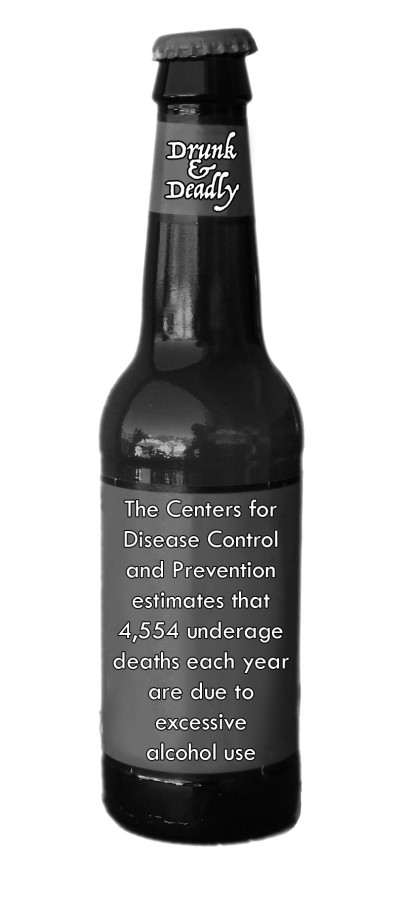Illinois Lifeline Law protects underage drinkers
February 5, 2016
The Lifeline Law, of Illinois, which gives immunity from legal prosecution to underage drinkers who call 9-1-1 for themselves or a friend, will take effect on June 1.
The legislation had been brought up almost three years ago in Illinois but failed to become a bill. State Representative Laura Fine was made aware of it by a former South student, Julia Jacobs. Fine said a main goal of the new legislation was safety.
“What we wanted to do was see if we could find the safest way to protect children without saying that it’s okay to drink underage because it’s not okay to drink underage,” Fine said. “But if somebody does make that mistake, we want to make sure that they don’t have to pay for it with their life.”
According to Fine, the law has limits. It will only protect up to three people involved in the emergency call and will not apply to schools and how they deal with students who use it. Principal Lauren Fagel elaborated that the school is not the main penalizer for underage drinking.
“If police walk into a party where there is underage drinking on the weekend [and] you’re involved in nothing, but you go to your classes [on Monday], we can’t punish you for what happened, but you’ll have problems with the police,” Fagel said.
South has few plans to change the Code of Conduct violations for students, even if they use the Lifeline Law, according to Athletic Director Steven Rockrohr. The only adaptation might be that calling authorities in an emergency would be taken as self-reporting.
“If you self-report, [the suspension from the athletic season] drops from 20 percent to 10 percent, so probably depending on the situation, it could very likely be dropped from 20 to 10 percent,” Rockrohr said. “You may not be self-reporting to me, but you’re still self-reporting to an authority figure.”
Rockrohr emphasized that he does not want Code of Conduct consequences to deter students from calling 9-1-1. Code of Conduct is meant to be a deterrent, a motive not to drink, according to Rockrohr.
“I hope they wouldn’t [be worried about Code of Conduct consequences],” Rockrohr said. “The idea of the Code of Conduct isn’t to punish. By default, it becomes a punishment when you [violate it], but the point is to prevent it from happening.”
The GBS Health Department has received no formal information about the Illinois law yet, according to Health teacher Laura Duffy, but she has conducted class discussions about it based on information on Indiana’s pre-existing Lifeline Law.
“We will definitely make it a part of the curriculum and put some questions on it on the final exam,” Duffy said. “It’s important to make sure everyone understands it.”
Susan Jones*, South teacher and alumni, had an experience as a student in which she needed the Lifeline Law. Finding a friend passed out in the bathtub presented her with a moral dilemma.
“It freaked me out, and I basically was scared to leave her and wasn’t really sure what to do so I sat next to her and kind of contemplated what I was supposed to do in that situation,” Jones said. “The first thing that I was most scared to do was calling 9-1-1.”
She chose not to call emergency services, and instead called the friend’s mother, an ER nurse. The mother arrived at the house and took the friend to the hospital where she was admitted for alcohol poisoning.
“Afterwards, we had a conversation with her mother [about how] after she got her to the hospital, the medical services at the hospital basically just said, ‘Thank God you got her here, because her body hadn’t really felt all of the effects of the alcohol yet, so it was still processing and being absorbed into her body,’” Jones said. “So, it could have gotten a lot worse, and we did the right thing by calling her mom.”
Jones’s friend recovered, and while neither the school nor the police were involved, they received punishments from their families, according to Jones.
“We got in trouble with our parents,” Jones said. “[The] school didn’t find out; no one got expelled or suspended but […] we had a serious conversation with our parents [and they said], […] ‘You did the right thing by calling someone, [but] you should have called 9-1-1.’ And if this law was there, we probably would have [called 9-1-1]. [But by calling someone] we probably saved her life.”
*name has been changed



